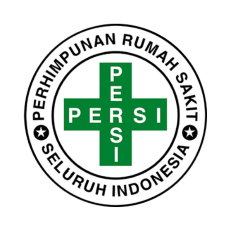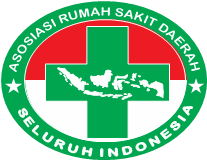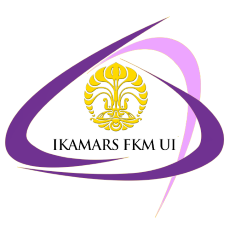Abstract
Implementing electronic medical records (EMR) in hospitals can increase the efficiency and effectiveness of health services. However, hospitals' readiness to adopt this technology is influenced by various complex factors. This study aims to identify factors that affect hospital readiness in implementing EMR through a systematic literature review (SLR). The SLR process followed the PRISMA method and included a literature search from Scopus, PubMed, and Cochrane databases with keywords related to RME readiness, which yielded 412 articles. After the screening and eligibility stages, 19 articles were selected for further analysis. The findings of this research identify readiness factors based on the theory of technology organization and environment (TOE). In the context of technology, factors such as technology access, perceived benefits, perceived usefulness, and performance expectancy emerge as important determinants of readiness. In an organizational context, management support, organizational culture, computer competency, and knowledge of EMR are key factors. Meanwhile, societal influence and environmental conditions play a significant role in the environmental context. These findings provide valuable insights for policymakers and hospital management in designing strategies to increase RME adoption readiness. This research has limitations in geographic and language coverage and the use of a single database. Therefore, further research is needed to broaden the scope and deepen understanding of the interactions between various readiness factors.
References
Abdulai, A.F. and Adam, F., 2020. Health providers’ readiness for electronic health records adoption: A cross-sectional study of two hospitals in northern Ghana. PloS One, 15(6), p.e0231569.
Abore, K.W., Debiso, A.T., Birhanu, B.E., Bua, B.Z. and Negeri, K.G., 2022. Health professionals’ readiness to implement electronic medical recording system and associated factors in public general hospitals of Sidama region, Ethiopia. PloS One, 17(10), p.e0276371.
Awol, S.M., Birhanu, A.Y., Mekonnen, Z.A., Gashu, K.D., Shiferaw, A.M., Endehabtu, B.F. and Tilahun, B., 2020. Health professionals’ readiness and its associated factors to implement electronic medical record system in four selected primary hospitals in Ethiopia. Advances in Medical Education and Practice, pp.147-154.
Alzghaibi, H., Alharbi, A.H., Mughal, Y.H., Alwheeb, M.H. and Alhlayl, A.S., 2023. Assessing primary health care readiness for large-scale electronic health record system implementation: Project team perspective. Health Informatics Journal, 29(1), p.14604582231152790.
Alshahrani, M., and Bahattab, A. 2015. A Comparative Study on the Adoption of Information Technology in Saudi Hospitals. Health Information Management Journal, 44(3), 23-28.
Bahadori, M., Alimohammadzadeh, K., Abdolkarimi, K. and Ravangard, R., 2017. Factors affecting physicians’ attitudes towards the implementation of electronic health records using structural equation modeling (SEM). Shiraz E-Medical Journal, 18(11).
Biruk, S., Yilma, T., Andualem, M. and Tilahun, B., 2014. Health professionals’ readiness to implement electronic medical record system at three hospitals in Ethiopia: a cross-sectional study. BMC Medical Informatics and Decision Making, 14(1), pp.1-8.
Depietro, R., Wiarda, E. and Fleischer, M., 1990. The context for change: Organization, technology and environment. The Processes of Technological Innovation, 199, pp.151-175.
Dimitrovski, T., Bath, P.A., Ketikidis, P. and Lazuras, L., 2021. Factors affecting general practitioners’ readiness to accept and use an electronic health record system in the republic of North Macedonia: a national survey of general practitioners. JMIR Medical Informatics, 9(4), p.e21109.
Esserman, D., Greene, E.J., Latham, N.K., Kane, M., Lu, C., Peduzzi, P.N., Gill, T.M. and Ganz, D.A., 2024. Assessing readiness to use electronic health record data for outcome ascertainment in clinical trials–A case study. Contemporary Clinical Trials, 142, p.107572.
Ghazisaeidi, M., Ahmadi, M., Sadoughi, F. and Safdari, R., 2014. An assessment of readiness for pre-implementation of electronic health record in Iran: a practical approach to implementation in general and teaching hospitals. Acta Medica Iranica, pp.532-544.
Gholamhosseini, L. and Ayatollahi, H., 2017. The design and application of an e-health readiness assessment tool. Health Information Management Journal, 46(1), pp.32-41.
Habibi-Koolaee, M., Safdari, R. and Bouraghi, H., 2015. Nurses readiness and electronic health records. Acta Informatica Medica, 23(2), p.105.
Hailegebreal, S., Dileba, T., Haile, Y. and Abebe, S., 2023. Health professionals’ readiness to implement electronic medical record system in Gamo zone public hospitals, southern Ethiopia: an institution-based cross-sectional study. BMC Health Services Research, 23(1), p.773.
Kabukye, J.K., de Keizer, N. and Cornet, R., 2020. Assessment of organizational readiness to implement an electronic health record system in a low-resource settings cancer hospital: A cross-sectional survey. PloS One, 15(6), p.e0234711.
Kim, J., Ohsfeldt, R.L., Gamm, L.D., Radcliff, T.A. and Jiang, L., 2017. Hospital characteristics are associated with readiness to attain stage 2 meaningful use of electronic health records. The Journal of Rural Health, 33(3), pp.275-283.
Lulin, Z., Owusu-Marfo, J., Antwi, H.A., Antwi, M.O. and Xu, X., 2020. Nurses’ readiness in the adoption of hospital electronic information management systems in Ghana: the application of the structural equation modeling and the UTAUT model. SAGE Open, 10(2), p.2158244020931814.
Ngusie, H.S., Kassie, S.Y., Chereka, A.A. and Enyew, E.B., 2022. Healthcare providers’ readiness for electronic health record adoption: A cross-sectional study during pre-implementation phase. BMC Health Services Research, 22(1), p.282.
Nicolai, B., Tallarico, S., Pellegrini, L., Gastaldi, L., Vella, G. and Lazzini, S., 2023. Blockchain for electronic medical record: assessing stakeholders’ readiness for successful blockchain adoption in healthcare. Measuring Business Excellence, 27(1), pp.157-171.
Oo, H.M., Htun, Y.M., Win, T.T., Han, Z.M., Zaw, T. and Tun, K.M., 2021. Information and communication technology literacy, knowledge and readiness for electronic medical record system adoption among health professionals in a tertiary hospital, Myanmar: A cross-sectional study. PloS One, 16(7), p.e0253691.
Razmak, J., 2022. Assessing patient readiness for a patient portal implementation in the UAE. Journal of Science and Technology Policy Management.
Yilma, T.M., Tilahun, B., Mamuye, A., Kerie, H., Nurhussien, F., Zemen, E. and Tegegne, M.D., 2023. Organizational and health professional readiness for the implementation of electronic medical record system: an implication for the current EMR implementation in northern Ethiopia. BMC Health Services Research, 23(1).
Bahasa Abstract
Penerapan rekam medis elektronik (RME) di rumah sakit dapat meningkatkan efisiensi dan efektivitas pelayanan kesehatan. Kesiapan rumah sakit untuk mengadopsi teknologi ini dipengaruhi oleh berbagai faktor yang kompleks. Penelitian ini bertujuan untuk mengidentifikasi faktor-faktor yang mempengaruhi kesiapan rumah sakit dalam menerapkan RME melalui systematic literature review (SLR). Proses SLR mengikuti metode PRISMA dan mencakup penelusuran pustaka dari basis data Scopus, PubMed, dan Cochrane dengan kata kunci yang terkait dengan kesiapan RME dan didapatkan hasil sebanyak 412 artikel. Pada tahap penyaringan dan kelayakan, 19 artikel dipilih untuk analisis lebih lanjut. Temuan penelitian ini mengidentifikasi faktor-faktor kesiapan berdasarkan teori organisasi dan lingkungan teknologi. Konteks teknologi, faktor-faktor seperti akses teknologi, manfaat yang dirasakan, kegunaan yang dirasakan, dan harapan kinerja muncul sebagai penentu pentingnya kesiapan. Konteks organisasi, dukungan manajemen, budaya organisasi, kompetensi komputer, dan pengetahuan tentang RME merupakan faktor-faktor kunci. Sementara itu, pengaruh masyarakat dan kondisi lingkungan memainkan peran penting dalam konteks lingkungan. Temuan ini memberikan wawasan berharga bagi para pembuat kebijakan dan manajemen rumah sakit dalam merancang strategi untuk meningkatkan kesiapan adopsi RME. Penelitian ini memiliki keterbatasan dalam cakupan geografis dan bahasa serta penggunaan satu basis data. Oleh karena itu, penelitian lebih lanjut diperlukan untuk memperluas cakupan dan memperdalam pemahaman tentang interaksi antara berbagai faktor kesiapan.
Recommended Citation
Fatmasari, Afni and Nadjib, Mardiati
(2024)
"HOSPITAL READINESS TO IMPLEMENT ELECTRONIC MEDICAL RECORDS: A SYSTEMATIC LITERATURE REVIEW,"
Jurnal ARSI : Administrasi Rumah Sakit Indonesia: Vol. 10:
No.
3, Article 4.
DOI: 10.7454/arsi.v10i3.1189
Available at:
https://scholarhub.ui.ac.id/arsi/vol10/iss3/4
Included in
Health and Medical Administration Commons, Other Medicine and Health Sciences Commons, Public Health Commons







